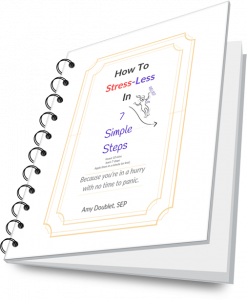They’re secret because no one seems to know about them…
…or let’s say there are very few of us…
First, let’s define trauma.
“Trauma is not an event, it is how your nervous system responds to the event.” – Dr. Peter Levine

This is one of the reasons I rarely ask people about their trauma history (unless it involves a physical injury – for other reasons we won’t explore here)
…because…
YOU ARE YOUR NERVOUS SYSTEM!!!
Everything that has happened in the past is affecting you NOW, in the context trauma, overwhelm or toxic stress.
Your physiology might be responding to a shock that is long over but your heart and respiratory diaphragm don’t know it.
You may have:
- no energy
- shortness of breath
- tightness in your chest
- frequently get panic attacks
This is your reality now, but the event happened 20 years ago, or maybe it was last year.
It is even possible there was no single event but over time your system broke down due to an overwhelming barrage of micro stressors.
The stress response (and our physiology – the way the body responds) is vital in understanding “trauma” because when we get stuck in survival responses such as fight, flight or freeze over time we lose the capacity for health and vitality.
Even worse, we can even lose the capacity to be in a healthy nurturing relationship with others.
6 Signs To Tell If You Have Undiagnosed Trauma:
ONE:
You just don’t feel ANYTHING.
In fact, you’re (possible fight response!) I keep asking you about your sensations because you don’t even feel your body.
Period.
Many people don’t feel a thing.
Especially those of us that get stuck deep inside a shutdown response. FREEZE. We just can’t feel a thing, maybe it’s just the body or it may include emotions.
{The other side of the coin is that people are so sensitive they’re overwhelmed.}
TWO:
Are you feeling stuck? – maybe experiencing “resistance”
Early imprints may be putting you into a defensive freeze response or shut down states.
You can’t shake the feeling, the struggle continues…..even though everything is “under control”.
You might be a power player that can get things done and are a taskmaster but are externally motivated. There is difficulty in being internally motivated. This is one sign of undiagnosed trauma.
THREE:
ANXIETY, Panic Attacks & Unreasonable Fear
Usually, occurring out of nowhere…
None of the “positive thinking” strategies work. Setting up your life for success with healthy routines and motivating self-talk simply isn’t effective if your nervous system is locked in any one of the survival responses.
If your nervous system is hyper-vigilant and on guard against perceived (or real) danger it is wanting to fight, go into flight or freeze and doesn’t have a chance to resolve these states you’ll continue to experience the anxiety, panic, and fear because it’s a natural biological response.
You may have even gone to the hospital when it gets so bad. Or wanted to. You think you’re literally having a heart attack. It’s just too much and you are way over stimulated, everything probably could set you off.
FOUR:
Eating Habits – Physical Activity
Diet and exercise aren’t helping you lose weight. No matter how strict and clean your diet is.
You eat all the right foods and exercise (a lot) but the weight just isn’t coming off. You may even be in a caloric deficit and are working out hard…BUT…
You just might be in freeze, the physiological state of survival. Either because of early trauma, shock trauma or overwhelm, that builds up over time.
You are not getting enough oxygen to the cells. Perhaps your ferritin is low (anemic?)
The amygdala is firing “danger” alerts and your body is staying in self-preservation, completely unwilling to drop a pound.
All survival signals are to store energy reserves because of the imminent danger. You lack energy and may even have chronic health issues.
FIVE:
Those who lack accurate gut instinct.
They just can’t differentiate between people who are safe and those who are not.
This is usually an indication of relational trauma – early developmental trauma.
It’s possible to think your childhood was happy, or generally ok.
But, in the case of neglect you rarely remember much of a childhood.
I can’t tell you how many people I’ve worked with that said their childhood was “trauma-free” or even “happy” but once we started exploring together (not the narrative) but their nervous system responses it turned out the memory didn’t match the physiological response showing up.
They can’t make decisions quickly and feel a huge amount of shame when asking for help.
They are usually people in toxic relationships...
If we’re always in danger from a young age (like really young) it’s really hard to have healthy boundaries because what feels normal is probably toxic.
This usually stems from early developmental traumatic experiences.
These people are expecting danger so when someone good is in their life they do not know how to respond and may push them away. It is because they don’t have the map for healthy relationships.
SIX:
CHRONIC ILLNESS (especially auto-immune)
- IBS (Irritable Bowel Syndrome)
- Depression
- Migraines
- Chrons Disease
- Chronic Fatigue – Fibromyalgia
- Lupus
Have you gone to all the specialists? Medical and Alternatives Practitioners? Are you virtually your own MD at this point?
Have you been to Shaman and traveled great distances for the next promising healing modality?
You’ve done everything and are still riddled with symptoms. The medical community says,“it’s all in your head.”
Specialists are stumped and drugs do not relieve your pain. (emotional or physical).
You may have even tried psyche drugs they’ve insisted you take, but they don’t help.
Download my free e-book and start the process of becoming your own medicine.
Learn the language of your nervous system and begin to change your biology.
